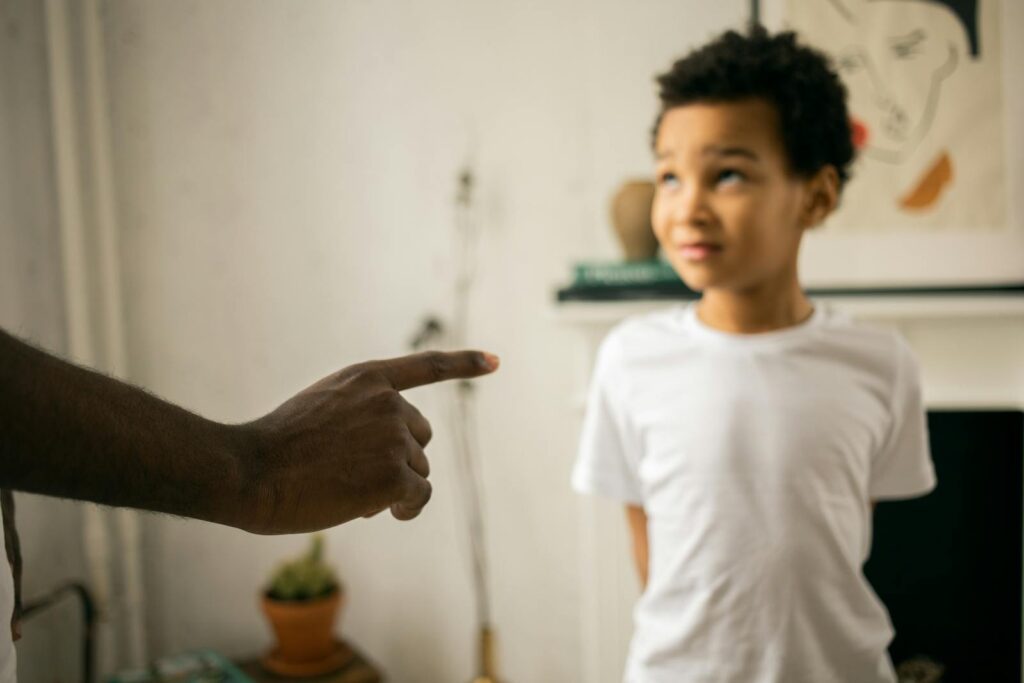
Trust between a parent and child grows through consistent love, honesty, and respect over the years. But when that trust is chipped away, it can leave lasting scars. Kids remember how you treat them, and those memories shape how they see relationships as adults. Here are 15 things that can quietly make children lose trust in their parents.
Breaking Promises Repeatedly

When a parent promises to show up, buy something, or spend time together and repeatedly doesn’t follow through, kids start to believe their words don’t mean much. One or two letdowns can be forgiven, but when it becomes a pattern, children stop expecting the parent to keep their word. Over time, they learn to prepare for disappointment instead of excitement.
Dismissing Their Feelings

When your kids say they’re sad, angry, or scared, most parent responds with “You’re overreacting” or “Stop being dramatic.” It teaches the child that their emotions aren’t worth taking seriously. Instead of feeling safe to share what’s on their mind, they shut down. This makes them turn to others for comfort, leaving an emotional distance between them and their parent.
Sharing Their Secrets Without Permission

If a child tells a parent something in confidence and later hears it repeated to relatives, teachers, or friends, the damage can be hard to repair. Even if the intention wasn’t harmful, it sends the message that privacy doesn’t exist at home. Kids then learn to keep important things to themselves to avoid embarrassment or feeling betrayed.
Being Overly Critical

Constantly pointing out flaws (whether it’s about grades, appearance, or behavior) can chip away at a child’s sense of worth. While guidance is very important, relentless criticism makes them feel like they’re never good enough. They may start hiding their mistakes not to improve but to avoid the sting of yet another disapproving remark.
Not Admitting When They’re Wrong

Parents who can’t apologize or own up to mistakes teach their kids that accountability doesn’t apply to them. When a child sees their parent deny the obvious, they start questioning whether honesty is a two-way street. Admitting fault not only restores trust but also models humility and integrity—things kids desperately need to see in action.
Ignoring Their Boundaries

If your kid asks for privacy and the parent ignores it, it can make them feel like their comfort doesn’t matter. While parents have a big role in guiding their kids, disregarding personal boundaries shows a lack of respect. This pushes kids to find space and independence elsewhere, away from their parents.
Comparing Them to Other Kids

Saying things like “Why can’t you be more like your brother?” or “Your cousin gets better grades” might be meant as motivation, but they usually have the opposite effect. It can make a child feel like they’ll never measure up in their parents’ eyes. That feeling of being second-best can lead to problems like resentment and guardedness in the relationship.
Using Love as a Bargaining Tool

When affection is given only when a child behaves a certain way or achieves certain things, it teaches them that love is conditional. Kids who grow up like this learn to perform for approval instead of being themselves. It’s very hard for them to trust that they’ll be loved unconditionally, and that doubt often follows them into adulthood.
Making Fun of Their Vulnerabilities

If a child shares a fear or admits a mistake and the parent turns it into a joke at their expense, it can be deeply damaging. Even if it’s meant as harmless teasing, the child may feel very embarrassed or betrayed by your actions. This can make them hesitant to open up again. They’ll be worried that their trust will be met with laughter instead of support.
Being Inconsistent With Rules

Children feel safest when they know what to expect. If the rules change from day to day or depend on a parent’s mood, it creates lots of confusion and anxiety. A behavior that is fine one day might lead to punishment the next, and kids start to feel like nothing is certain. This unpredictability makes them cautious and guarded, and over time, they stop trusting that home is a fair and stable place.
Taking Sides Against Them in Public

When a parent immediately supports a teacher, family member, or even a stranger without listening to their child first, it can feel deeply hurtful. Children want to know that their parents will at least hear their perspective before making a judgment. If they are always assumed to be at fault, they begin to feel abandoned in moments when they need backing the most, and that sense of betrayal can linger for years.
Minimizing Their Achievements

When a child does something they’re very proud of and the parent responds with “That’s nothing special” or immediately points out what could have been better, it leaves them feeling deflated. Over time, they might stop sharing successes altogether. Even small wins matter to a child, and recognizing them helps strengthen the bond rather than weaken it.
Using Their Words Against Them

When a kid confides in a parent during a moment of vulnerability and the parents use those words in an argument, it’s a clear breach of trust. This can make the child feel unsafe expressing themselves, knowing that what they say might be turned against them later. Always remember that trust thrives on safety, and by using your child’s vulnerability, you will lose that trust for good.
Favoring One Sibling Over Another

Even subtle favoritism (like giving more attention, praise, or opportunities to one child) can create resentment among siblings. The overlooked child feels like they have to compete for love that should be unconditional. And this isn’t about sibling rivalry, but about the belief that their parents value someone else more, which can deeply damage trust.
Ignoring Their Side of the Story

When kids don’t have the chance to explain themselves before a decision is made, it sends the message that their voice doesn’t matter. Even if the outcome wouldn’t change at all, simply listening can make a big difference. Refusing to hear them out can make them feel powerless and disconnected, both from their parents and from the relationship itself.

